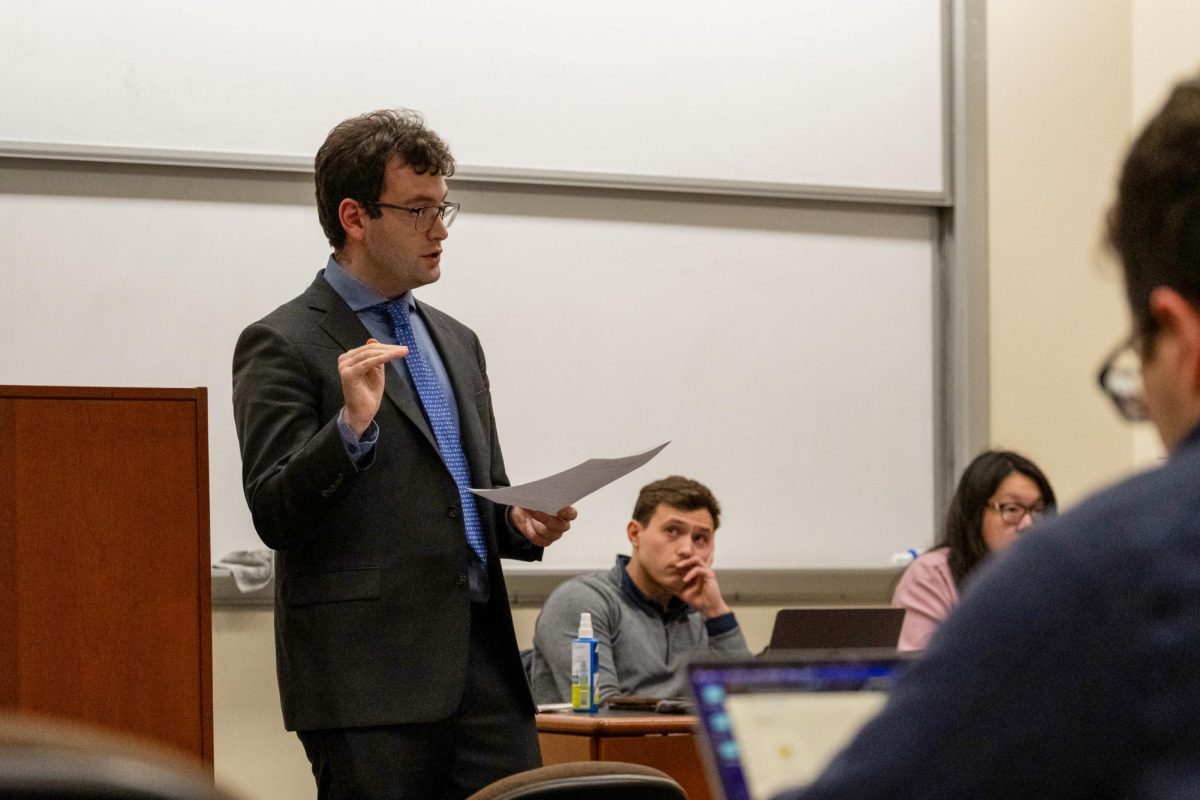Updated: Oct. 19, 2017 at 3:54 p.m.
Top editors of two of the country’s most prestigious news organizations discussed the state of journalism and reporting on the Trump White House at an event at the National Press Club Monday evening.
New York Times Executive Editor Dean Baquet and Washington Post Executive Editor Marty Baron were interviewed by legendary CBS News journalist Marvin Kalb as part of the long-running public television, radio and online series The Kalb Report.
The series is jointly produced by the School of Media and Public Affairs, The National Press Club Journalism Institute, Harvard University, University of Maryland University College and the University of Maryland.
Former University President Stephen Joel Trachtenberg and SMPA Director Frank Sesno were in attendance for the discussion.
In case you missed it, here are some highlights from the event:
1. Reporting in the age of Trump
Kalb initiated the panel discussion by asking his guests how the media cover President Donald Trump in the digital age, without undercutting their standards.
Baron said the most important part of news in the current political climate, where the press is consistently attacked by Trump and his allies, is to report the news as accurately and fairly as possible.
“Every day when I walk into our newsroom we have the principles of The Washington Post on a wall facing me,” Baron said. “The very first principle, which has been around there for more than eight decades, is to tell the truth as nearly as the truth may be ascertained.”
Baron said covering the Trump administration is sometimes difficult because of the hostile climate it has created for journalists, citing then candidate-Trump’s decision to revoke The Post’s press credentials for a time during last year’s campaign.
Baquet said there has been a shift in the culture of Washington under Trump, but he said the adversarial relationship between politicians and the media isn’t unique to the Trump administration or the current political environment.
“There’s always been a tense relationship. I don’t want to have a cozy relationship with any president. I don’t go to the Christmas parties, I don’t go to the White House Correspondent Dinners,” he said, referring to an annual dinner featuring journalists, politicians and celebrities.
2. Financial side of news reporting
The two editors said both news organizations now rely on subscriptions to fund their journalism, a major shift away from the advertiser-supported model of the past.
Baquet said three years ago the biggest challenge faced by The Times would have been its financial situation, but that is now no longer the case. Both Baron and Baquet said since Trump’s rise, their news organizations have seen a dramatic increase in paid subscribers.
“The revolution in the economics of the great news organizations like ours is that suddenly we are more dependent on readers than advertisers, and that’s just a remarkable development,” Baquet said.
Baron added that since Trump’s inauguration the American public has gained a greater understanding of the value of journalism, a significant departure from past attitudes.
“If the American people don’t support quality journalism, they will not get quality journalism,” he said.
3. Decline of local news media
Baquet said the greatest issue facing the media at large was the decline of local news organizations because it could result in rural areas receiving less information about their communities.
“I think that there are entire sections of America that are not covered,” he said. “My guess is there are places like Mississippi and Alabama that don’t cover their congressional delegations because they don’t have Washington bureaus, Washington correspondents.”
Baquet said the news needed to be in the lives of people all over the country so that they could make more informed decisions at the ballot box and in their communities.
“The consequence of having an entire part of the country not covered, I think that’s catastrophic,” he said. “It means that there are school boards right now that are making decisions with nobody watching. It means that there are budgets that are getting passed in places where the news organizations have staffs are too small to spend days going through the budget.”
Baron predicated that the fall of small news organizations could lead to “the degradation of, basically, civil society at the local and regional and state level.”
This post was updated to reflect the following correction:
The Hatchet incorrectly spelled Marty Baron’s first name. It is now correct. The Hatchet also incorrectly attributed two quotes from Dean Baquet to Marvin Kalb. The attribution has now been corrected. We regret these errors.





